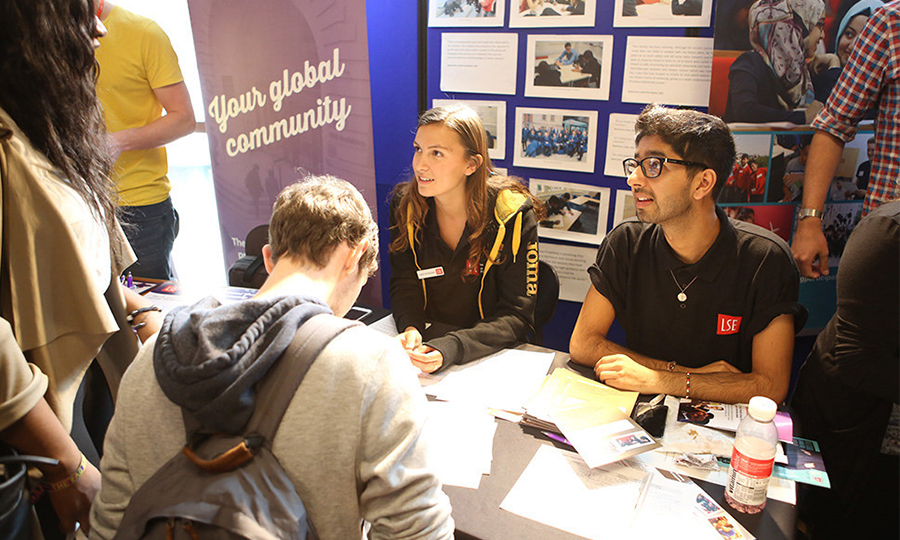In the second blog in our MSc Research Series on equity, diversity and inclusion (EDI), we hear from Harshita Pilla, MSc Human Resources and Organisations (HRM/CIPD) student in LSE’s Department of Management. Organisations around the world are competing to hire the best people and build diverse teams. Sharing insights from her research into the Benelux region, Harshita discusses the attributes of companies and jobs that appeal most to diverse talent.
Why I chose to research EDI
With diverse talent making up a large proportion of the job market and the war for talent on the rise, I felt there was a need to find what aspects of jobs and organisations were attractive to diverse candidates.
With organisations wanting to hire the best talent and build diverse teams at the same time, I thought it imperative to explore which work attributes were most important to prospective employees.
This research was conducted as part of the LSE Links Scheme and was carried out with the help of a fellow LSE student, Aldo Bimantoro.
My research question and the method I used to explore it
My dissertation was: “Discovering Employer and Job Attractiveness Attributes Which Increase Culturally Diverse Talents’ Intention to Apply in Benelux Countries”.
The research question takes on the theoretical underpinnings of overall diversity in the workplace, cultural diversity, and employer branding. Stemming from these three facets, my research aimed to understand what levers attract diverse talent into an organisation. It also tried to identify a relationship between attractiveness level and intention to submit a job application to the organisation.
Quantitative (sample size 82) and qualitative (sample size 4) methods were used for the research. The research was conducted in Benelux countries (Belgium, Netherlands, Luxembourg). Quantitative data was collected from people living in these countries and who make up the incoming and existing workforce (graduating Master’s students and tenured employees). Qualitative data was collected from employees of a top fast-moving consumer goods (FMCG) organisation from Benelux.
Some of the thought-provoking findings that practitioners should be aware of
A big finding was that diverse talent view diversity within organisations as a ‘hygiene factor’, or a minimum standard for companies. Professionals prioritise finding inclusive environments which are conducive for them to thrive and develop.
Generally, diverse talent are more influenced by employer attributes rather than job attributes. This means organisational values are crucial when potential new hires consider applying. It’s also important for organisations to stand out, as job values can be quite similar from one company to another.
Even though the diversity value was perceived as highly important, it was developmental value and societal value that had a more significant effect on candidates’ decision to apply for a job. This suggests candidates expect more when it comes to demonstrating social commitments, as opposed to just having diverse teams.
Some other key findings from my research were:
- Ownership of one’s career, job rotation and good leadership were shown to be attractive to diverse talent.
- Flexibility, teamwork and a sense of belonging were perceived to be significantly more important by diverse talent compared to historically represented talent.
- Economic value had a lower level of importance to diverse talent in comparison with historically represented talent. Diversity and social values scored the highest in importance with these employees.
Some ideas for future research based on the study I conducted
This research only focused on ‘surface-level’ diversity related to a person’s demographics. Future researchers should look at ‘deep-level’ diversity, or difference in beliefs, styles, and other facets of cognitive diversity.
Another aspect for consideration would be to expand the geographic base of future research to include responses from different locations.
Additionally, conducting research in countries which do not have General Data Protection Regulation (GDPR) regulations would allow researchers to collect more precise data.
Advice I have for others looking to study EDI
EDI is a topic gaining momentum and importance with each passing year. It’s important to stick to the core of it and focus on the foundational basics of it in order to strengthen the community.
While studying EDI, it is imperative to take on a holistic approach towards diversity and the undercurrents that are driving our civil society. The politics of now is something to be considered and the line needs to be treaded carefully and encompassed in the research.
Notes:
- Feature image by Christina @ wocintechchat.com on Unsplash.
- Connect with Harshita on LinkedIn.
- The post represents the views of its author(s), not the position of LSE’s Department of Management or the London School of Economics.





